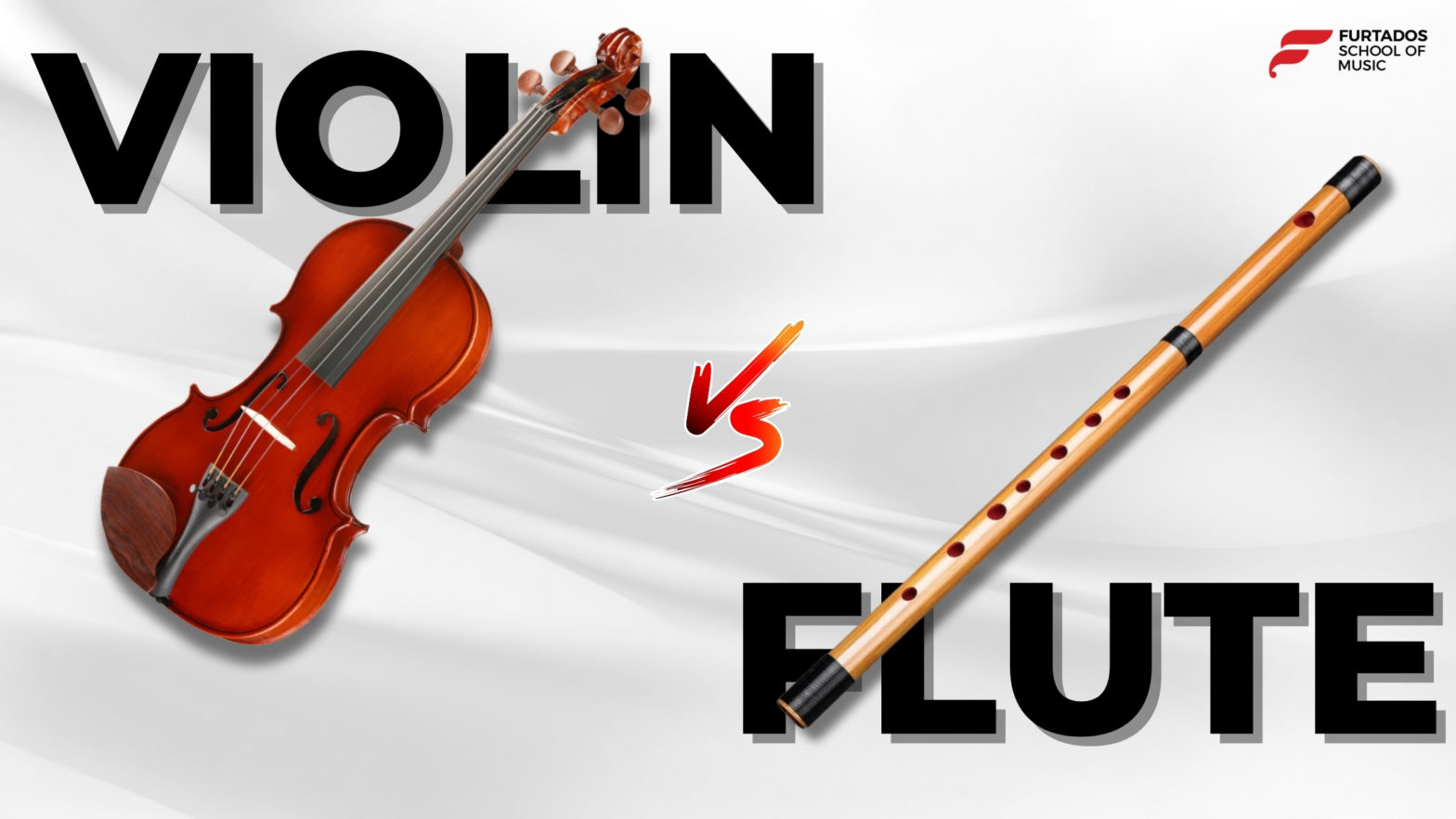Choosing a musical instrument for your child—or even for yourself—can feel overwhelming. With so many beautiful options, how do you pick the right one? Two of the most popular choices among beginners are the flute vs violin—both expressive, classical, and incredibly rewarding to learn. But when you’re just starting out, the big question remains: Which one is easier? Let’s explore the world of flute vs violin for beginners, and help you make the best decision for your musical journey.
Flute vs Violin for Beginners
Why Learn an Instrument in the First Place?
Before diving into comparisons, it’s important to understand why learning an instrument matters at all—especially for children.
- It builds discipline and focus
- It enhances memory, coordination, and motor skills
- It improves listening, patience, and creativity
- It boosts confidence and emotional expression
- It provides a healthy outlet for stress and self-expression
Music is more than a skill—it’s a lifelong companion that sharpens the mind and nourishes the soul.
Is Flute Hard to Learn?
Let’s tackle this common concern: is flute hard to learn?
The flute is one of the most popular wind instruments and is known for its lightweight build, melodic tone, and simple design. For beginners, especially children, it offers some clear advantages:
- No strings to tune
- Light to carry and handle
- Easy fingering systems once mastered
- Quick results with simple melodies
However, the challenge lies in developing the right breath control and mouth shape (embouchure) to produce a clear, steady sound. This may take some time and patience—but once the sound is right, progress can be quick and fun.
What About the Violin?
Now, let’s talk about the violin. Known for its expressive and emotional tone, it’s a string instrument loved across classical, film, and even folk music.
But compared to the flute, the violin can be harder to learn at first, because:
- It has no frets, so finger placement requires ear training
- Holding the instrument correctly involves posture and technique
- Bowing can feel awkward and takes time to control
- Tuning the violin can be tricky for beginners
However, learning the violin builds a strong musical foundation, especially for ear training and coordination. It may be more challenging, but it’s also deeply rewarding.
So, What’s the Easiest Instrument to Learn for Kids?
When comparing options, the flute often comes out as the easiest instrument to learn for kids, particularly those between 6 and 10 years of age.
Here’s why:
- The flute requires less initial technical effort than the violin
- Children can start producing notes and playing simple tunes within weeks
- It’s visually engaging, lightweight, and fun to play
- The learning curve is gentler, helping build early confidence
That said, if your child is more interested in string sounds, or is keen to play in orchestras or classical ensembles, the violin is also an excellent choice—with the right guidance.
The Importance of Routine and Practice
Regardless of the instrument, one thing remains constant: regular practice is the secret to musical progress. Beginners often think talent is everything, but the truth is:
- Consistent, short practice sessions (20–30 minutes daily) make the biggest impact
- Practice builds muscle memory, improves sound, and sharpens focus
- It teaches children the value of routine and self-discipline
Creating a fun, goal-oriented practice schedule—perhaps with small rewards—can turn practice time into a positive and creative daily ritual.
How to Choose: Flute or Violin?
Here’s a quick way to decide:
- Choose the flute if your child enjoys light melodies, quick learning, and easier handling.
- Choose the violin if your child is drawn to rich tones, deeper emotional expression, and doesn’t mind a slightly steeper learning curve.
In both cases, your child will develop a strong musical base that can last a lifetime.
Learn Music the Right Way with FSM
At Furtados School of Music (FSM), we offer structured online courses for both flute and violin, tailored for beginners of all ages. Our experienced instructors ensure every learner progresses step by step, with a focus on technique, creativity, and confidence-building.
With FSM, your child gets:
- Guided beginner-friendly lessons
- Certified, supportive music educators
- Flexible scheduling and practice resources
- Performance opportunities and feedback
- Both Indian and Western-style courses
Final Thoughts: Spark the Joy of Music
Whether it’s the gentle breeze of the flute or the soulful strings of the violin, learning an instrument opens up a world of possibilities. Let your child explore, enjoy, and grow into a confident, expressive musician—one note at a time.
Ready to begin your child’s musical journey? Enroll in FSM’s flute or violin program today!
